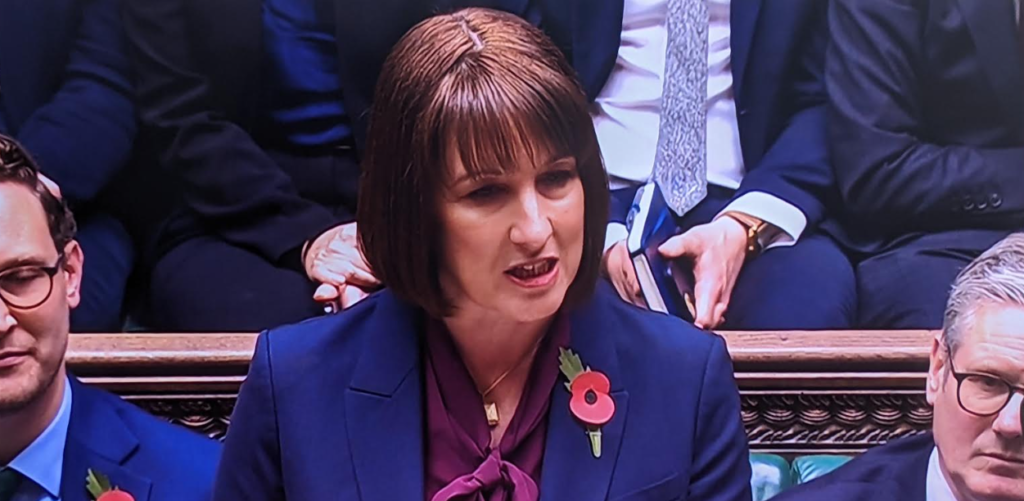Chancellor Rachel Reeves provided a massive finacial boost to the NHS with a £22.6bn increase in the day-to-day health budget and a £3.1bn increase in the capital spend over this year and the next.
Day-to-day departmental spending will grow at an average of 2% per year in real terms between 2023-24 and 2029-30 to support public services, including the delivery of 40,000 extra elective appointments a week and reducing NHS waiting lists.
The capital investment boost for 2025-26 includes £1.5bn to deliver capacity for more than 30,000 NHS procedures, more than 1.25 million more diagnostic tests and new beds across the NHS estate, and £1bn to reduce the backlog of critical NHS maintenance, repairs and upgrades.
And in the Spring the government will publish a 10-year plan for the NHS to modernise the NHS that Reeves said will include a shift from hospital to community, from analogue to digital and from sickness to prevention.
Reeves (pictured) saved “the most cherished public service of all – our NHS” for last in her 75-minute Budget presentation, promising a reduction in waiting lists and an NHS that is “there when you need it”.
She said that due to the decisions she had taken on tax and welfare she could spend more on the NHS.
“We can now begin to bring waiting lists down more quickly,” Reeves promised.
“This is the largest real-time growth in day-to-day NHS spending outside of Covid since 2010,” she said.
There would also be £1bn of health capital investment next year “to address the backlog of repairs and upgrades across our NHS.
“To increase capacity for tens of thousands more procedures next year we will provide a further £1.5bn for new beds in hospitals across our country, new capacity for over a million additional diagnostic tests, new surgical hubs and diagnostic centres – so that people waiting for treatment can get it as quickly as possible.”
Over £2bn will be invested in NHS technology and digital to run essential services and drive NHS productivity improvements, to free-up staff time, ensure all trusts have electronic patient records, improve cyber security and enhance patient access through the NHS App.
Reeves said: “Because of this record injection of funding, because of the thousands of additional beds that we have secured and because of the reforms that we are delivering in our NHS, we can now begin to bring waiting lists down more quickly and move towards our target for waiting times to be no longer than 18 weeks.”
‘Unforgiveable’ deficiencies
Reeves listed some of the “unforgivable” deficiencies of the NHS under the previous Conservative government.
“A hundred thousand infants waited over six hours in A&E last year, 350,000 people are waiting a year for mental health support,” she noted.
Referencing the 10-year plan, she continued: “Today we are announcing a down payment on that plan to enable the NHS to deliver 2% productivity growth next year.
“These reforms are vital,” she said, but added that the previous decade had been the most austere for the NHS since it was founded.
